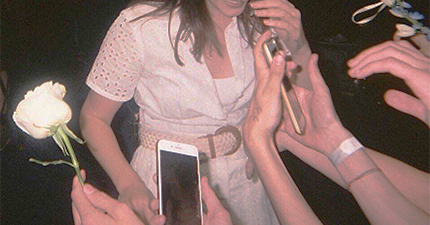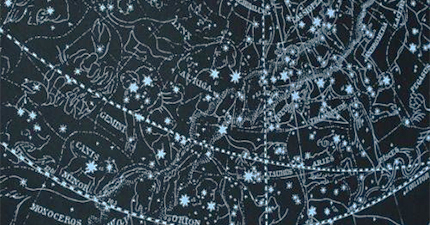Intro to the Second House
Is the second house supposed to be about money? What is money anyway?
When I talk to people about their second houses, we talk about addiction, about recovery, about power struggles, about feeling owned by the ways in which you seek to break free from someone, and about the fear of loss.
According to Firmicus, the second house is about “personal hopes and material possessions.” Material possessions seem straightforward enough—it’s things that you can touch or, rather, things that you can own, right? But what’s ownership? Is it a means of touching?
Personal hopes! It turns out that there is an aspirational element of the second house. It’s not just things that you can and are allowed to touch. It’s things that you want to touch.
When Phillip K Dick writes about the distinction between reality and fiction, he defines reality as that which doesn’t go away when you stop believing in it. Money is not real under this definition of reality. Neither is aspiration, that state of having personal hopes, and neither is possession.
The second house is the Gate of Hell. It’s the gate to the underworld because, if you approach the second house from the first, then you are moving below the horizon. You’re moving underneath the earth. Any planets present in the second house at your time were not situated in the visible portion of the sky. They were deep below.
Maybe, all of the wealth and the richness in the world, of the land, sprouted from down under. Maybe Hades is rich. Another association of the second house is sex. It’s the house of gain but it’s also the house of loss.
The second house is about something crucial—something that we believe we can control when we have it but something that we cannot control when we don’t. The second house is about choice. It’s about the choices that we have access to and what it means to have those choices but not other choices. Because that’s what money is. It’s choice. Choice always looks like an option but acts like control.
This is why the second house can rule addiction, because addiction is something that feels like a series of choices. It’s possible to get stuck on a choice or a sequence of them, one leading you right to another. Your choices bring you more choices but you’re not sure how and in what way. The eighth house is about the choices of others and we’ll talk more about that later.
The Second House Changes
The second house changes less than any other house because choice remains choice. The types of choices you have changes but you’re always going to be controlled by choice.
In the first part of life, choice is often about response. You inherit the choices of your lineage but you’re almost never taught what, exactly, those choices have meant. In the first part of life, choice is sometimes about rebellion and sometimes about endurance. It’s sometimes about whether you stick up for yourself or not. You enter your teens on a second house profection year, sometimes screaming and sometimes catapulting. The first second house profection is toddlerhood. Control, as a kid, is sometimes about throwing tantrums.
The second house changes after your first Saturn return because your choices, and what having choice means to you, changes after that sacred return. The first time you’ll go through a second house year after a Saturn return is when you’re 37 and then, again, when you’re 49. Often, these years are about recovery. The second house is where we describe the first house. It’s where we figure out how we can control the frightful superheroes and monsters we find when we look into the mirror and find that our identities have changed because our choices have changed,
We integrate tantrums and recovery, later, when we integrate choice and control. Later, it turns out that the second house is not about holding things firm but about letting them move in the ways that they are already trying to move. Having malefics in the second house can mean that you fear having control. Having the Sun or Moon here can mean that you felt controlled by someone close to you when you were a kid. When you integrate choice with control, when you let things move the way they already are—that’s when you find that it’s the things that you assume you know about control that are, in the end, completely inconsequential.
Jupiter
The Greeks, at least according to some storyteller I once met, thought that beneath the dirt lay a whirlwind of riches, rot, and glory. From under the earth is where life emerges. Hades was just a dead place. It was a prenatal place.
This is why the house that succeeds the horizon, the second house, has Jupiter as co-significator. This is the house that limits the horizon, that put a stop to what goes on in that stretch of gaze from here to somewhere else. The horizon describes the ends of the earth. Jupiter signifies them because Jupiter is about wealth.
There’s a planet that Jupiter doesn’t get along with—Mars. Mars suffers more than other planets when it is placed in the second and eighth houses or when it rules them. The reason why Mars suffers when it rules the second house is because choice is most terrifying when it is placed within the context of struggle.
Saturn also does not love being in the second house. He doesn’t rage here, like Mars, but he weeps. Saturn is regretful in the second, because he lives in his usurper’s house. Remember—for much of life, the second house is about rebellion. When Saturn is placed in the second house, Saturn approaches control as if he had already lost it to begin with.
Nothing finds joy in the second house because it is invisible from the horizon and because there is no joy in control. You either feel like you have it and find out that you don’t or you think you don’t have it and realize at some point that you do. Where there is choice, there is power but there is no joy. There is power, there is strength, and there is, oftentimes, regret but there is no pleasure. Pleasure is not willed but can only be stumbled upon.
Working with the second house
The second house can’t really be worked on because it is about work. The best thing that you can do with a choice, like a wish or an aspiration, is to make it and then to let it go. Blow it away like a dandelion seed. In the end, control controls you when you expect to control how it is shaped.
There’s a poem by some poet I forgot the name of that is about the impossibility and futility of choice. It goes something like this: someday, your dog will die. Your parents will die. Your children will die. You will die. There’s another way that the poem could have been written, I think: someday, you will fall in love with your dog. You will look at your parents and realize that you never noticed their beauty. You will find life where you least expected it. You were born.
All of these things are things that happen despite choice. There is something about choice that looks and feels like money, because money can give people choices that are useful or useless. Money can get you out of an abusive relationship without you having to go to a shelter. Money can buy your parents healthcare. Money means that you buy the toothpaste priced a dollar more than all the others. There are some choices that mean more than others.
Sometimes, we believe in money because we have to believe in choice, in agency, and in power. This kind of thing might not be what keeps us alive but it is what makes us choose life. Isn’t that a fiction? The idea that we can choose life, as though we can choose death. Would life fulfill the terms of reality as set by Phillip K Dick? Does life go away if you stop believing in it?
The second house is about choice. It’s about control. It’s about power and agency—about support, too, or the support that you have access to. It is about how well or poorly resourced you are but it is mostly about grief. The phrase “material possessions,” as it turns out, is oxymoronic. To possess something is to question its availability and its reality. To lose something, to stop believing in it, is to trust that it will remain.


